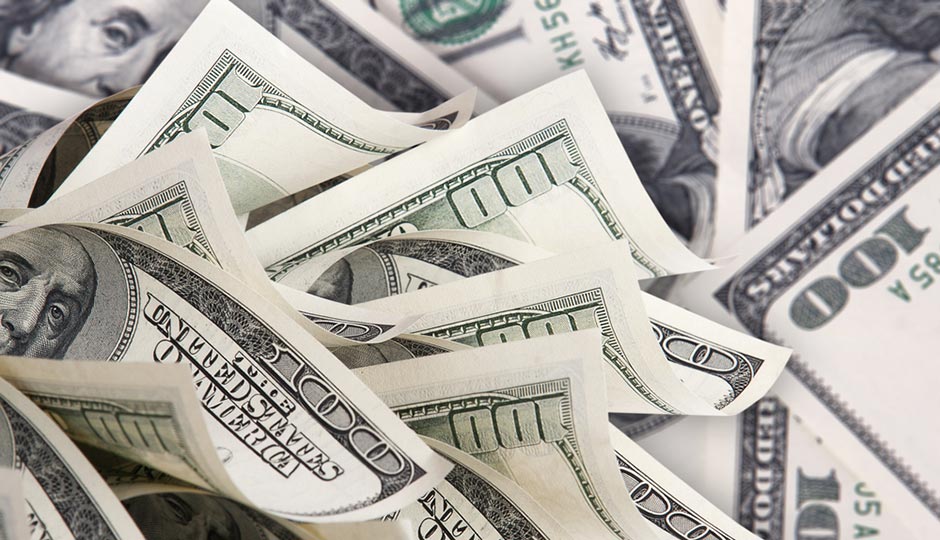The Brief: Philly’s Strict Campaign Finance Rules Are a Success! Sort Of …
1. Philly’s Campaign Finance Reform, Against All Odds, Is Still Kind of Working
The gist: Look, it’s true: Super PACs, which can spend unlimited amounts of money in elections as long as they don’t coordinate with any campaigns, are dominating Philadelphia’s mayoral race. A single super PAC backing state Sen. Anthony Williams for mayor stockpiled nearly $7 million from Jan. 1st to May 4th. That’s more money than was raised in 2015 by all six of the city’s Democratic mayoral candidates combined. Meanwhile, the labor-affiliated super PACs Building a Better Pa. and Forward Philadelphia, which are supporting former City Councilman Jim Kenney, together raised almost $2.3 million. Compare that to the three frontrunners — Williams, Kenney and former District Attorney Lynne Abraham — whose campaigns each raised only $1 million-plus.
Will the funders of Philadelphia’s super PACs have undue influence over the next mayor? That’s a fair, and open, question. But there’s good news! The candidates themselves still must abide by the city’s campaign finance rules, which cap contributions at $2,900 for individuals and $11,5000 for political action committees.
Why it matters: The Philadelphia Inquirer’s Chris Hepp explains why that is making a difference, even as super PACs go hog wild:
For the third mayoral race in a row, Philadelphia’s attempt at campaign-finance reform seems to have done much of what it was intended to do: dampen big money’s power to buy the city’s next chief executive. … [Former mayoral candidate Sam Katz] noted that before 2003, and headlines generated by an FBI investigation of Philadelphia’s “pay-to-play” political culture, the finance reports were dominated by huge donations — $100,000-plus — from law firms and wealthy individuals.
“There is no point in covering how much money anybody gives anymore,” Katz said, referring to media reports on the campaign filings. “Because it is irrelevant. It doesn’t matter. Which says to me the system works.”
NewsWorks’ Dave Davies also writes:
Turn the calendar back a couple of decades, when there were no limits on contributions in city races (there are still none in the rest of Pennsylvania), and you saw big contributions – $25,000, $50,000 and more to mayoral candidates.
Sometimes they came from rich friends of the candidates, but mostly, big checks came from people and institutions who had an interest in city policy or contracts, and wanted to be players: law firms, insurance companies, developers, and unions. What’s striking to me is that in this mayor’s race, when the door was open to big money, only the unions came to market. The law firms, insurance brokers and developers stayed home.
2. The Daily News Endorses Jim Kenney for Mayor
The gist: The Daily News Editorial Board writes:
Philadelphia, at the center of a convergence of growth, positive attention and forward movement, is having a moment. While still beset with big problems, we can more easily stand with other modern cities — no longer corrupt and content, no longer in thrall to pay to play, patronage, ethical shortcomings and soul-killing bureaucratic indifference, much of which can be credited to Mayor Nutter’s past seven years.
Interviewing candidates, and attending some of the countless debates and forums to weigh our choice for the Democratic choice for next mayor, we have focused a key question: Who is most likely to keep the momentum going?
We believe that Jim Kenney is best equipped to accomplish that.
The Daily News also explained why it didn’t endorse Williams: “He is a longtime representative of a Harrisburg that has a miserable track record in its regard for the city, and for public education. His alignment with billionaire backers who share his single-minded focus on vouchers and charter schools — though he has barely addressed the charter issue during the campaign — is problematic.”
Why it matters: Last week, Citified said that Philadelphia’s political elites were fleeing Williams in favor of Kenney. The DN’s endorsement is just one more sign of that. But without an independent poll in this year’s mayoral race, there is no way of knowing what effect this is having on the city’s voters.
3. City Council Axes Neighborhood Budget Hearings
The gist: City Council holds the vast majority of its hearings on the mayor’s proposed budget in City Hall during work hours. But Council usually schedules a handful of them at nighttime in Philadelphia’s neighborhoods so that residents can more easily participate. City Council President Darrell Clarke told KYW he has canceled the neighborhoods hearings this year because “he says candidate forums leading up to this month’s primary served that purpose.”
Why it matters: The neighborhood budget hearings were originally scheduled to take place shortly before the May 19th primary election. Council members are sometimes lambasted at these events. Now, lawmakers won’t have to worry about getting bad press at neighborhood hearings during an election year. It is true, though, that there have been an ungodly number of forums this season. However, most of them have featured mayoral, not City Council, candidates.
